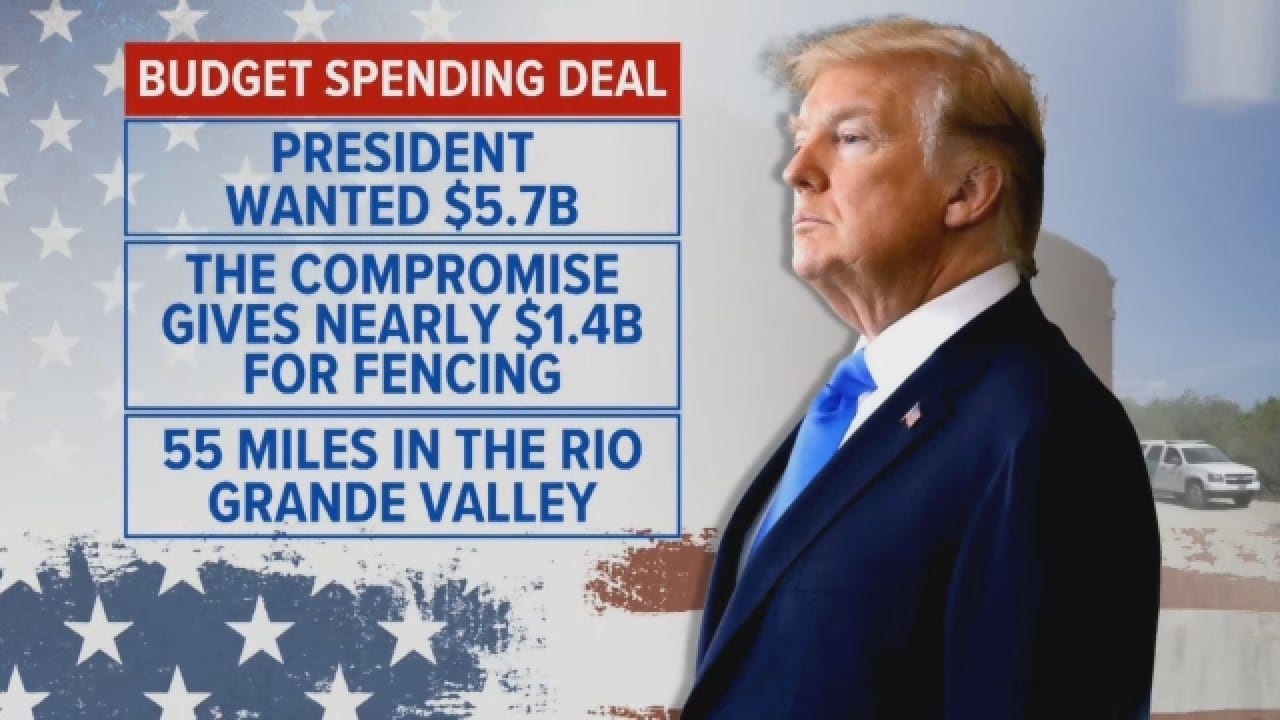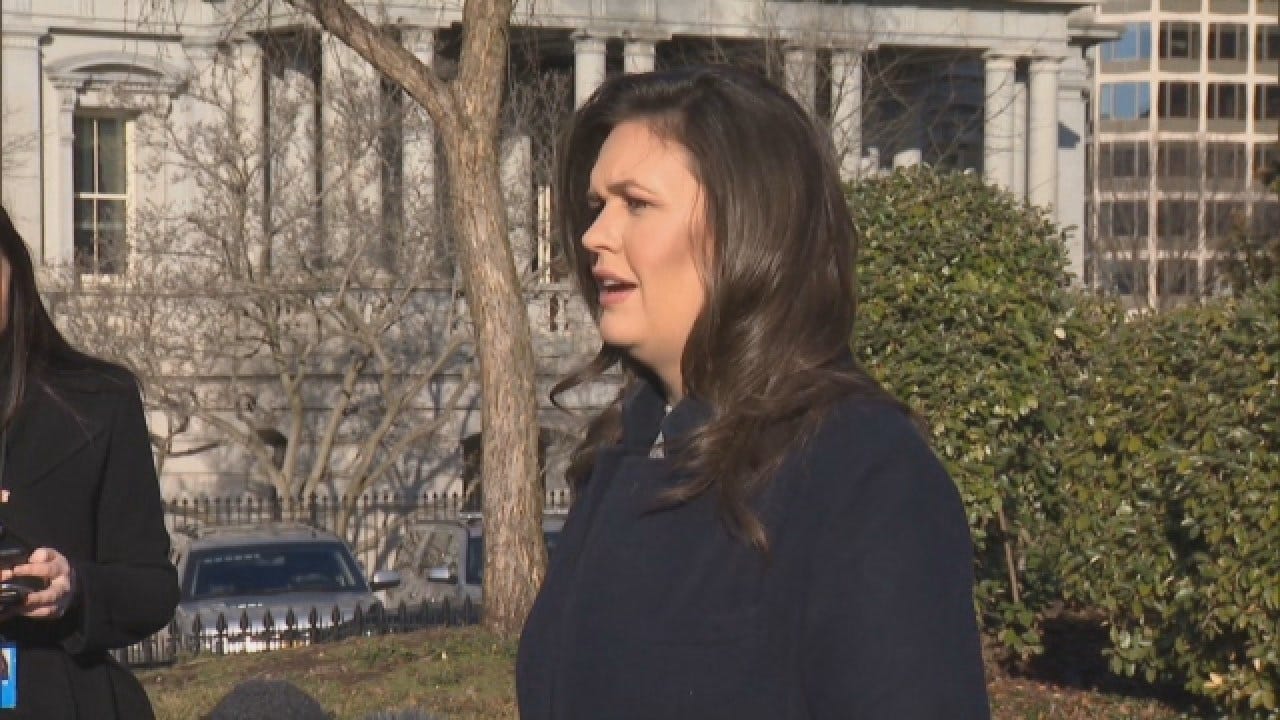Shutdown Watch: President Trump Poised To Sign Border Deal
The clock is ticking yet again as Washington aims to avert a second government shutdown of the year.Wednesday, February 13th 2019, 11:03 am
The clock is ticking yet again as Washington aims to avert a second government shutdown of the year. Congressional lawmakers hope to have President Trump sign what they call an "agreement in principle" on border security funding. After hours of deliberations, Democrats and Republicans formulated a deal late Monday on legislation to fund the government past the Friday deadline.
Mr. Trump tweeted on Tuesday that he had reviewed the border funding agreement reached by the bipartisan group of congressional negotiators. An official familiar with the matter told CBS News he is "very likely" to sign the deal if it reaches his desk.
Follow along for live updates of border funding developments:
Trump not "happy" with border deal
At a meeting with his Cabinet on Tuesday, Mr. Trump expressed his displeasure with the agreement brokered by a bipartisan group of lawmakers from the House and Senate.
"I can't say I'm happy. I can't say I'm thrilled," the president told reporters on Tuesday in a Cabinet meeting.
CBS News' Chief Washington Correspondent Major Garrett told "CBS This Morning" on Wednesday that the president has been handed the "worst deal of all the ones ever put before him" because it contains the smallest dollar amount possible for border security funding.
"The great deal maker dealt himself the worst possible hand of all of them given to him by Congress," said Garrett, adding that the president has "no choice" but to take it.
What about the national emergency?
In recent days and weeks, the president hasn't ruled out the possibility of a national emergency if he doesn't get sufficient funding for his border wall.
According to CBS News' Chief Washington Correspondent Major Garrett, all necessary legal work has been done at the Department of Justice and the White House Counsel's office for emergency declarations related to border security. This does not mean Mr. Trump will necessarily declare a national emergency to get his border wall built, but Garrett told "CBS This Morning" on Wednesday that "it's more likely than not" that the president will issue the declaration.
Garrett adds that if Mr. Trump decides, the legal work has been done to the satisfaction of DOJ Office of Legal Counsel and the White House. That does not mean a declaration, if it is used, would not be challenged in court or that it could be found legally problematic. But the administration believes, according to a senior administration official, it has done its due diligence.
Mr. Trump has suggested he can get money from other places, although it's unclear exactly what he means by that.
Sarah Sanders says "some positive pieces" to border deal
White House Press Secretary Sarah Huckabee Sanders told reporters on Wednesday that the president wants to see what the final piece of legislation looks like before deciding to formally sign off or not on a border deal. Taking a dig at the House Speaker, Sanders told reporters outside the White House, "Unlike Nancy Pelosi, we actually like to read legislation before we agree to it."
"There are some positive pieces of it," conceded Sanders, but noted "one way or the other, and one thing that you can be sure of is at the end of the day, the president is going to build the wall. He said he was going to get it done and he will."
Hakeem Jeffries: Deal "represents 21st century border security"
House Democratic Caucus Chairman Hakeem Jeffries says that the agreement that has been reached by he conference committee "represents 21st century border security." Jeffries, speaking to reporters after the Democrats caucus meeting on Wednesday, said that the deal reached includes "many Democratic priorities as it relates to investment and infrastructure."
Jeffries told reporters that based on his conversations with the caucus on Wednesday, there was an "overhwleming majority" of the House Democratic caucus that would support the legislation. The Democrat said the deal would be presented on the House floor on Thursday.
CBS News' Rebecca Kaplan reports that Majority Leader Steny Hoyer confirmed that the House hopes to have the legislation ready to go by Thursday and pass it by Thursday night.
"This legislation is a product of trying to find common ground, we made clear from the beginning that we wouldn't support funding for a medieval border wall. We also indicated we were prepared to support evidence-based barriers where necessary," said Jeffries. He added that the caucus concluded that it is "reasonable to support 55 miles of additional barrier in a manner that is consistent with evidence-based approach to find common ground and improve security" along the southern border.
More Like This
February 13th, 2019
March 22nd, 2024
March 14th, 2024
February 9th, 2024
Top Headlines
April 25th, 2024
April 25th, 2024
April 25th, 2024












